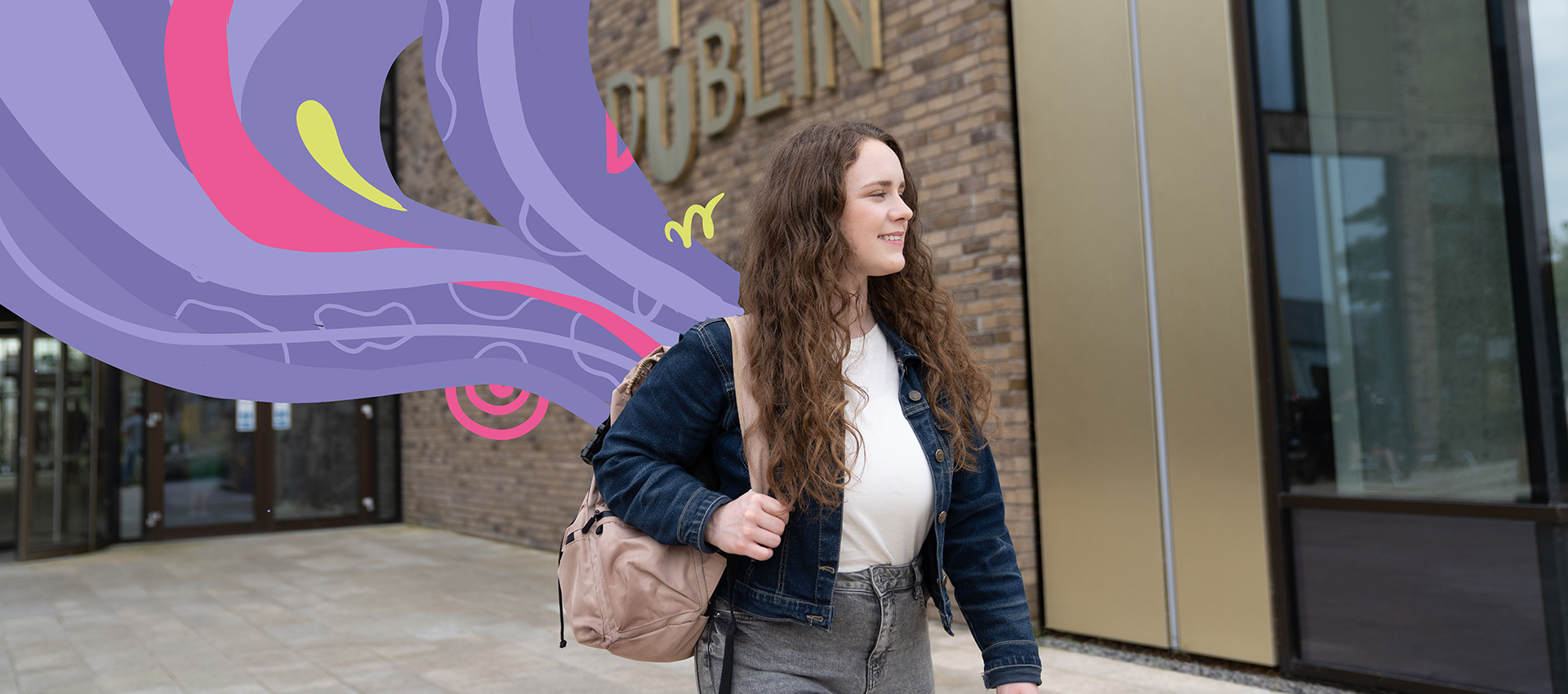This Major in Music Composition is suitable for students who wish to specialise in Composition. Students should have experience in the study of harmony and counterpoint (intermediate level) and ideally, a strong interest in composing their own music (in Classical and related styles.)
All students will study core modules in Aural, History and Composition/Theory to meet the criteria of core subjects in music degrees. For students wishing to progress to the PME, we have included other statutory modules (as options) to meet Teaching Council requirements.
As a student, you will have ten to eleven mandatory modules (assuming the Major commences in Year 2) totalling 50 to 55 ECTS credits. You will also be able to choose from optional modules and pathways as you progress through the Major. The Performance and Ensemble modules provide experience in solo and collaborative performance. These are complemented by supporting academic/practical modules in History, Pedagogy, Composition (theory) and Aural.
Students will practice, develop and demonstrate development in all skill areas of composition, as well as acquiring a contextual cultural and analytical understanding of the music. There are a range of optional modules that enable students to further explore composition opportunities through the participation in composition seminars; there are options to develop Professional and Music Technology Skills, and options to expand historical studies by taking modules in Irish Traditional Music and World Music.
ECTS Credits: 80
- Total Number of Mandatory credits to be taken (excluding the capstone project): 40
- Total Number of Optional credits to be taken: 30
- Total Number of Credits for the Capstone Project: 10
What is the latest (semester) a student can select the Major
Spring Recess 2nd Year
- Composition Studies 1
- Foundations of Musical Theory
- Aural 1
- History of Music 1
- Composition Studies 2
- Aural 2
- History of Music 2
- 19th C. Composition and Orchestration
- Post-Tonal Analysis and 20th - 21st Century Composition
- Capstone: Composition Portfolio
- Keyboard Skills
- Introduction to Irish Traditional Music Past and Present *Needed for teaching council requirements
- Technology and Professional Studies 1 *Needed for teaching council requirements
- Chamber Music and Conducting 1
- Chamber Music and Improvisation 1
- Performance 1
- Performance 2
- Ensemble 2
- Technology and Professional Studies 2
- Introduction to Analysis and Inst./Vocal Teaching
- Ensemble 3
- Studies in Music History and Performance Practice 1
- Technology and Professional Studies 3
- Chamber Music 3
- Collaborative Contemporary Music
- Studies in World Music
- Ensemble 4
- Chamber Music 4
- Professional Studies 4
- Studies in Music History and Performance Practice 2
A Major in Music Composition allows the student to discover their own unique compositional voice through the study of traditional composition techniques and their application and relevance to their own style of writing. One of the advantages of studying composition at a Conservatoire lies in the potential for collaboration with other performers and indeed, unique access to a wide vriety of instruments, ensembles and their teachers/conductors.
Engaging with performance at the Conservatoire enhances the composer’s ability to understand how music is translated from the score to the platform. The unique environment allows the student-composer to navigate their own pathway, with the guidance of a composition lecturer, in order to arrive at a point where they are discovering their own potential and their own particular modes of expression as a composer.
Graduates of the major in Music Composition on the Arts programme are likely to pursue career opportunities in many sectors, especially if they complement their study in Arts with electives or even a double major in disciplines as disparate as computer science, media, tourism & hospitality management or food science.
It is the ideal major for creative students with a real interest in classical music. You will be able to develop your interests and passions through the choices you make, and through your engagement with the versatile and critical approaches to learning that you will experience.
As musicians/composers with a strong compositional voice, you will be able to work in a variety of cultural and educational settings whilst nurturing your own personal, professional career and development as a composer.
Graduates of this course could find themselves
- Working in music schools, media organisations
- Working with other performers to promote contemporary composition
- Pursuing professional postgraduate study to qualify as primary school teachers or to qualify and register with Teaching Council for second-level teaching
- Pursuing postgraduate study in new or complementary areas of interest in music, and for which a major in composition provides an ideal background
- Working in the field of Film Composition
- Working as a Music arranger

